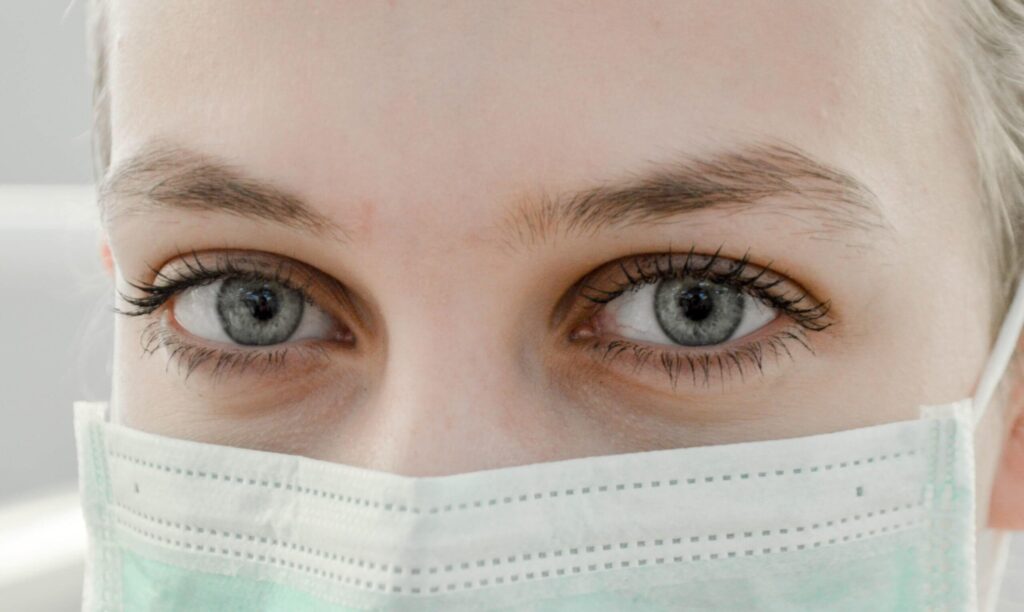During the COVID-19 pandemic, most people have had to make major adjustments in their lives. Whether they are being told to stay at home or to maintain social distances from others, the new isolation can be stressful. For professionals, particularly those in healthcare, who are on the front lines of the outbreak, the anxiety can be overwhelming. Understanding how to break the coronavirus anxiety cycle is critical for your continued health and well-being throughout the coronavirus outbreak.
The Cycle of Anxiety and Addiction
Anxiety in professionals, such as lawyers, doctors, and pilots, is often seen as the root of their addiction to drugs or alcohol. Likewise, when the professional is addicted, he or she will become more stressed over the feeding of that addiction. Anxiety is a behavior seen in addicts that is disproportionate to that of the rest of the population. Addiction, in turn, causes long-term damage to the mechanisms that can help the individual relieve the symptoms of anxiety.
Retraining the Brain
As a professional in recovery, you can break the coronavirus anxiety cycle. As Dr. Judson Brewer, associate professor at Brown University, suggests, however, you cannot try to suppress or think yourself out of anxiety. Dr. Brewer explains that “both willpower and reasoning rely on the prefrontal cortex, which isn’t available at these critical moments.” The key, he says, is to understand how the brain works and to see “how uncertainty weakens the brain’s ability to deal with stress, priming it for anxiety when fear hits.”
Deliberately bringing in the “bigger better offer” will help you to replace old habitual behaviors such as worry and anxiety with those that “are naturally more rewarding.” Dr. Brewer explains that “panic can lead to impulsive behaviors that are dangerous; anxiety is both acutely mentally and physically weakening and a slow burn that has more long-term health consequences.”
A simple worrying thought such as your habit of touching your face, for example, can be replaced with positive thoughts:
- If we are starting to worry: “Oh no, I touched my face, maybe I’ll get sick!”,
- Instead of panicking, take a deep breath and ask: “When was the last time I cleaned my hands?”
- “Oh, right! I just washed my hands.”
By focusing on the positive outcome, by “taking a moment to pause and ask the question, we give our prefrontal cortex a chance to come back online and do what it does best: think.” That enables you then to leverage certainty in place of anxiety. You know if you’ve washed your hands, the likelihood of getting sick is low.
A Second Contagion and the Power of Mindfulness
Dr. Jud Brewer, director of research and innovation at the Mindfulness Center at Brown, refers to the new coronavirus anxiety cycle as a “second contagion,” infecting our own personal habits as well as our social interactions. Dr. Brewer says that “anxiety is that feeling of worry or unease that comes when we face an uncertain outcome.” During the COVID-19 pandemic, “we are smack dab in the middle of an uncertain situation.”
To help his patients keep their stress and worry from becoming a habit, Dr. Brewer uses mindfulness, which “can help our brains let go of this habit that isn’t helping us.” Mindfulness also involves an awareness of how the mind works, particularly in moments of anxiousness. The cycle of worry and anxiety can also be seen during the coronavirus outbreak, as “worrying just perpetuates anxiety, because worrying doesn’t actually fix whatever the problem is, and it feels bad, which just feeds more anxiety, which in turn feeds more worry.”
Mindfulness is “paying attention in a particular way: on purpose, in the present moment and non-judgmentally,” as described by Jon Kabat-Zinn, Ph.D., from U. of Mass. Medical Center. Mindfulness is very helpful in reducing stress and can help you break the coronavirus anxiety cycle. As an addict in recovery, mindfulness can also help you cope with cravings and triggers that are prevalent in these stressful times.
A New Routine
COVID-19 has caused most people to adjust their routines. You may find that you are watching more news, trying to learn as much as you can about the outbreak. You may be on the front lines or you may be in isolation at home. To break the coronavirus anxiety cycle, create a more positive routine that includes good nutrition, regular exercise, and enough sleep. Take breaks from the news and from the stress and anxiety that it can create for you.
Most importantly, avoid alcohol, drugs, and any situations that may be triggers for you in your addiction recovery. Stay connected with friends and family, virtually, to alleviate the sense of isolation. Seek out help in the form of online support groups and therapy that may be offered via telehealth options.
Providence Treatment Options During COVID-19
At Providence Treatment, we now offer telehealth support to clients who may need to remain at home, or who may have restrictions on travel, to increase access you need for your sustained recovery. We use a telehealth technology that enables us to remain HIPAA-compliant and ensures your confidentiality is maintained. You don’t have to let anxiety and addiction take over your life during COVID-19. You can overcome addiction with outpatient treatments at Providence Treatment. If you need help, contact us at 484.469.9592.









